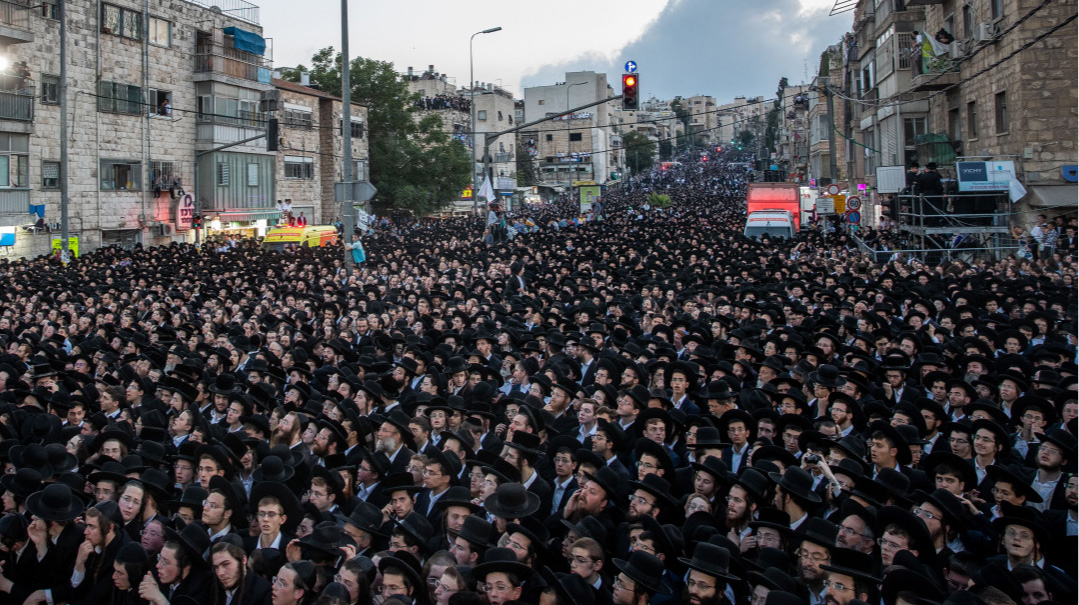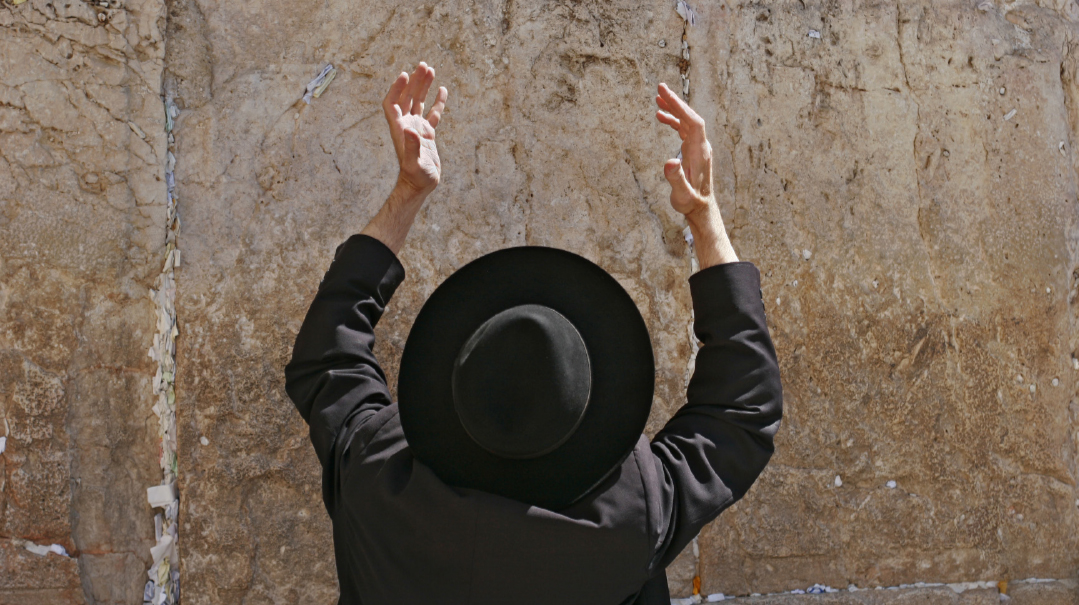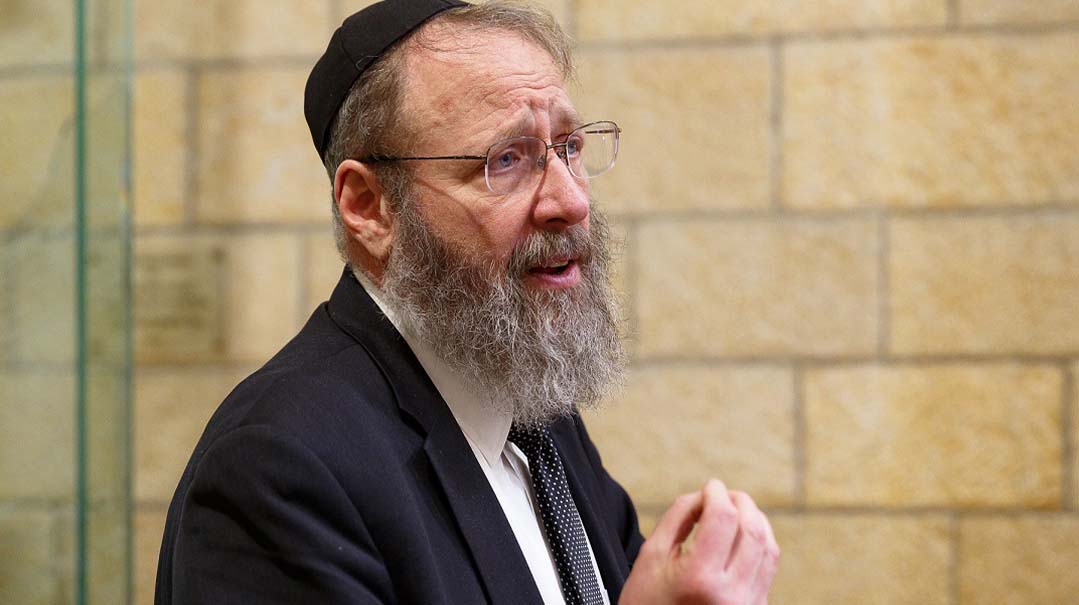Notes from the Road

What I call an Am Yisrael tour
I have to admit it: I suffer from the lure of the open road. In the right mood, there’s a sense of freedom in soaring through the skies or eating up the miles in a car. Cities flash by, vistas change by the minute, and acceleration beyond anything our horse-powered ancestors dreamed of gets the pulse going.
Even without lockdowns, though, endless-seeming stretches of highway are hard to come by in pint-sized Israel. A few miles to the right and you’re deep in the West Bank. A few miles to the left and you’re in the Mediterranean.
So, two years after a global travel ban forced airlines to mothball jets and car rentals to sell off their fleets, recent trolley-dashes around the Tristate area and Paris were a taste of the pre-pandemic world of carefree travel.
And wanderlust apart, they gave a sense of something that in my experience, is just as bracing as the open road.
It’s what I call an Am Yisrael tour.
To pull it off, your itinerary needs to looks something like mine. In an effort to cram a pandemic’s worth of live meetings into a single day after a recent Eretz Hakodesh convention in Monsey, I found myself davening Shacharis in that town, spending midmorning with askanim in Boro Park, afternoon discussing local issues in Lakewood, and supper airborne alongside a group of traditional Israelis, some of whom were putting on tefillin despite the late hour.
That fly-on-the-wall-meets-race-against-the-clock dynamic repeated itself in Paris this week, accompanying a Dirshu siyum of the Mishnah Berurah cycle.
Fresh off the plane in an alien city, I wandered the heavily Jewish 19th arrondissement in search of a Minchah minyan, and found myself in a Nusach Morocco minyan of good, honest amcha. Shacharis the next morning was in the giant Chabad school that serves 2,000 students. An hour later, on the way to the airport, I saw an entirely different world — a high-level yeshivah, one of a growing number in the French capital.
Like a film reel, that swift, almost blurred interchange of very different frames of the Jewish People reveals something clearer: a viewpoint that we rarely access in the bubbled existence that our communities now are.
What comes into focus is a Klal Yisrael perspective.
In normal life, most of us interact with family, friends and communities. By their very nature, communities are built around commonality; a chassid has good reason to choose Boro Park, just as a member of the Modern Orthodox world might be drawn to Teaneck. Humans are simply better at highlighting difference than finding common ground.
Compartmentalization of Jewish life is also a product of our growth: We can afford to define “in-groups” ever more narrowly, because there are enough of us to turn each of those groups into dynamic, self-contained communities.
But there’s a problem with that view of Jewish life. It obscures an important truth, which is that no one segment of Klal Yisrael — however successful it is, however many great people it produces — is a replacement for the Klal.
The Jewish People as a spiritual entity is the sum of its parts, warts and all. The Klal includes our in-groups, and our out-groups; communities we approve of, and those we don’t; individuals we admire, and those we’re ashamed of. “Klal” means what it says; it’s not shorthand for those who cover their heads the way we do.
A Klal perspective is not first and foremost about promoting achdus; it’s about looking beyond our own bubble.
Heretical as it sounds, we may actually have something valuable to learn from other Torah communities.
Looking further afield, the Orthodox community’s boom in America is a wonderful gift. But beyond the ghetto gates, in the vast hinterland of Jewish life, millions of Jews are vanishing.
The growth of the Torah world after a near-death experience a few decades ago is miraculous. But as the Piaseczna Rebbe wrote in the introduction to his Chovas Hatalmidim, how can we be satisfied with our yeshivos in Warsaw when most Jewish youth never make it through their doors?
Even if you don’t have plans to dash around an unfamiliar Jewish community to take in the vastness called Klal Yisrael, here’s a travel-themed substitute: Try finding a tzenter for an airport minyan.
Because when you’re one man short, an amazing thing happens: the Jew who doesn’t look, think, or behave like you is suddenly transformed into an integral part of the Klal. He’s literally your only ticket to a proper davening.
(Originally featured in Mishpacha, Issue 899)
Oops! We could not locate your form.





